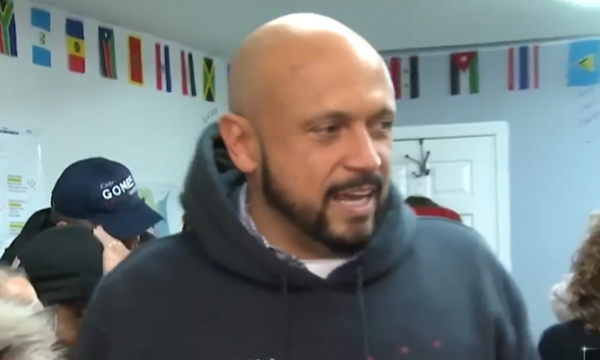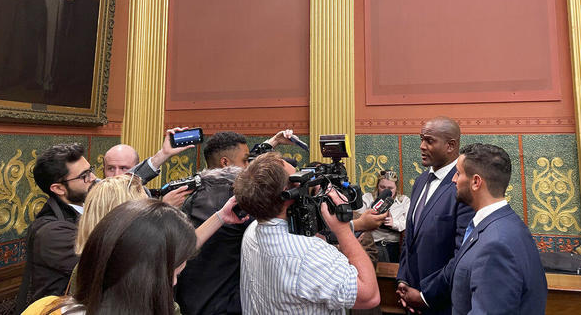Dueling Jurisdictions
It was once pretty clear: there were some actions that cities and towns could take, and other things that could only be done at the state level. Likewise, while the Constitution reserves some powers to the states, others are the domain of Congress alone.
And governments at all levels tended to stay in their own lanes, so to speak.
Today, not so much. For a number of reasons, state and local governments are testing the bounds of what they are allowed to do. And in some cases they are provoking a backlash.
States, Cities Step In
This trend is perhaps best seen in environmental regulation. When gridlock grips Washington, DC, states become bolder in striking out on their own, as in the case of California’s groundbreaking auto emissions standards, or in regional efforts like the Northeast’s Regional Greenhouse Gas Initiative (RGGI).
Cities and towns, too, are feeling their oats. Environmental groups like the Sierra Club have discovered that by lowering their sights they can often convince local communities to take on issues once considered to be the sole province of state and federal government. If mayors balk, activists can enlist champions of their cause on the city council or boards of health. If town officials don’t get on board, these groups can in some cases rally support to impose bans via town meetings or local referendums.
In California, for instance, more than five dozen cities and counties today ban expanded polystyrene food containers. In Massachusetts, nearly one-quarter of all cities and towns have now banned single-use plastic bags, mostly by vote at town meetings.
Pushback
In some states local activism of this sort is pressuring state legislators to adopt similar measures statewide, in hopes of providing retailers with a more uniform playing field.
But in other states, legislatures are pushing back. The New York legislature, for example, in 2015 claimed exclusive jurisdiction over “all matters pertaining to plastic bag and film plastic recycling.” Idaho and Missouri too have similar bans in effect.
Bills to prohibit, or pre-empt, local communities from enforcing their own rules for plastic bags were also considered this year in a number of other states, including Minnesota (HF 1504) and North Carolina (HB 271). Mississippi this spring enacted SB 2570, which enjoins counties and municipalities from regulating or banning most “auxiliary containers” – including bags, cups, bottles, etc. – or imposing any form of fee or tax upon them. Missouri this year considered three bills to replace its law pre-empting only bag ordinances with one barring regulation of all so-called auxiliary containers (HB 1396, HB 2334 and SB 853). Bills that would enact similar laws were also found this year in Florida (SB 1014), Kentucky (SB 82), Minnesota (SF 3135/HF 3606), Ohio (SB 210), Wisconsin (AB 990), South Carolina (HB 3529), and Utah (SB 218). While most of them failed, the fact that so many were filed is a sign that Republican legislatures, especially, are not taking this challenge to their authority lightly.
State legislatures are also pre-empting municipalities in other areas. Minnesota’s came down hard on Minneapolis, for example, when the city tried to set its own, higher minimum wage; Ohio in 2016 did the same to Cleveland. North Carolina’s HB 2 [2016] famously sought to overturn a Charlotte anti-discrimination ordinance that opponents derisively termed a “bathroom bill.” Other states have prevented cities and towns from enacting restrictions on gun control, “fracking” and enforcement of immigration law; many limit what cities and towns can do around employment issues such as fair pay standards and scheduling. Arizona went so far in 2016 to enact SB 1487 [2016], which withholds all state funding from cities, towns and counties that, in the opinion of the attorney general, adopt any ordinance that “violates any provision of state law.”
Going to Extremes?
If Arizona’s “blanket pre-emption” law represents the apogee of this trend, another more recent effort has nearly pushed the envelope in a different way. Nearly two-thirds of all states already bar localities from regulating seeds, including those pretreated with pesticides. According to the advocacy group Beyond Pesticides, however, the farm lobby recently won a provision in the 2018 federal Farm Bill,H.R. 2, that would effectively require states to pre-empt local communities from taking any action that restricts pesticide use on private property. While allowing states to adopt regulations on pesticides than are more restrictive than those in federal law, Section 9101 would bar any “political subdivision of a State” from doing the same. The Farm Bill recently stalled in Congress amid a protest by conservative Republicans on an unrelated issue, but chances are good that some version of this usually-popular bill will pass by September, when the current bill expires.
Whether it does or not, attempts at pre-emption – whether by federal over state government or by state over local – are apt to increase, at least in the short term. The past decade has seen stronger party discipline in Congress, increased geographic polarization among the electorate, and heightened tension between those espousing conservatism vs. those calling for change in the nation’s economic, social and environmental policies. All three trends can be expected to fan the flames of discord and to encourage more frequent and more divisive conflicts over the allocation of powers among local, state and federal government.


